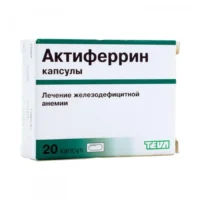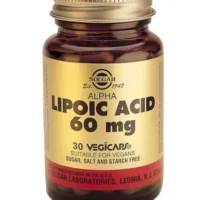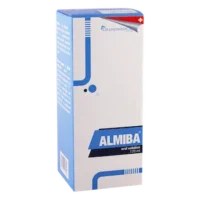Description
Ascocin (Ascorbic Acid) Chewing Tablets №100
Ingredients:
Each tablet contains: Ascorbic acid (Vitamin C) 1000mg.
Mechanism of Action:
Ascorbic acid functions as a cofactor for numerous enzymatic reactions involved in the synthesis of collagen, neurotransmitters, and carnitine. It also acts as a potent antioxidant, scavenging free radicals and protecting cells from oxidative stress.
Pharmacological Properties:
Ascocin tablets deliver a high dose of Vitamin C, supporting optimal levels in the body. Vitamin C is absorbed in the small intestine and distributed through the bloodstream to various tissues. Excess Vitamin C is excreted primarily through urine.
Indications for Use:
Ascocin tablets are indicated for the prevention and treatment of Vitamin C deficiency, which can lead to scurvy. Vitamin C is essential for collagen synthesis, immune function, and antioxidant protection. Additionally, it aids in the absorption of iron from plant-based sources.
Contraindications:
Avoid using Ascocin tablets if you have a history of kidney stones or kidney disease, as high doses of Vitamin C may exacerbate these conditions. Consult a healthcare provider before use if pregnant, nursing, or taking medications that may interact with Vitamin C.
Side Effects:
Common side effects of Vitamin C supplementation may include gastrointestinal disturbances such as diarrhea, nausea, and stomach cramps. In rare cases, allergic reactions or oxalate kidney stone formation may occur with high doses.
Usage Instructions:
For adults: Chew 1 tablet daily or as directed by a healthcare professional. The tablet should be thoroughly chewed before swallowing. It can be taken with or without food. If a dose is missed, take it as soon as remembered, but do not double the dose to make up for a missed one.
Benefits Compared to Analogues:
Ascocin tablets provide a high potency of Vitamin C in a convenient chewable form, ensuring better absorption and bioavailability compared to traditional Vitamin C supplements. The chewable formulation enhances compliance, especially in individuals who have difficulty swallowing pills.
Suitable Patient Groups:
Ascocin tablets are suitable for adults of all ages, including the elderly and individuals with difficulty swallowing solid dosage forms. However, caution is advised in patients with a history of kidney stones or renal impairment.
Storage and Shelf Life:
Store Ascocin tablets in a cool, dry place away from direct sunlight. Keep the container tightly closed to protect from moisture. Check the expiration date on the packaging and do not use the tablets if expired.
Packaging Description:
Ascocin tablets are packaged in a container with 100 chewable tablets. The packaging is designed to protect the tablets from environmental factors and ensure their stability throughout the shelf life.
Clinical Evidence and Proven Effectiveness:
Studies have shown that Vitamin C supplementation can reduce the duration and severity of the common cold. Research published in the “Nutrients” journal demonstrated that regular intake of Vitamin C can enhance various immune cell functions, providing a protective effect against infections.





